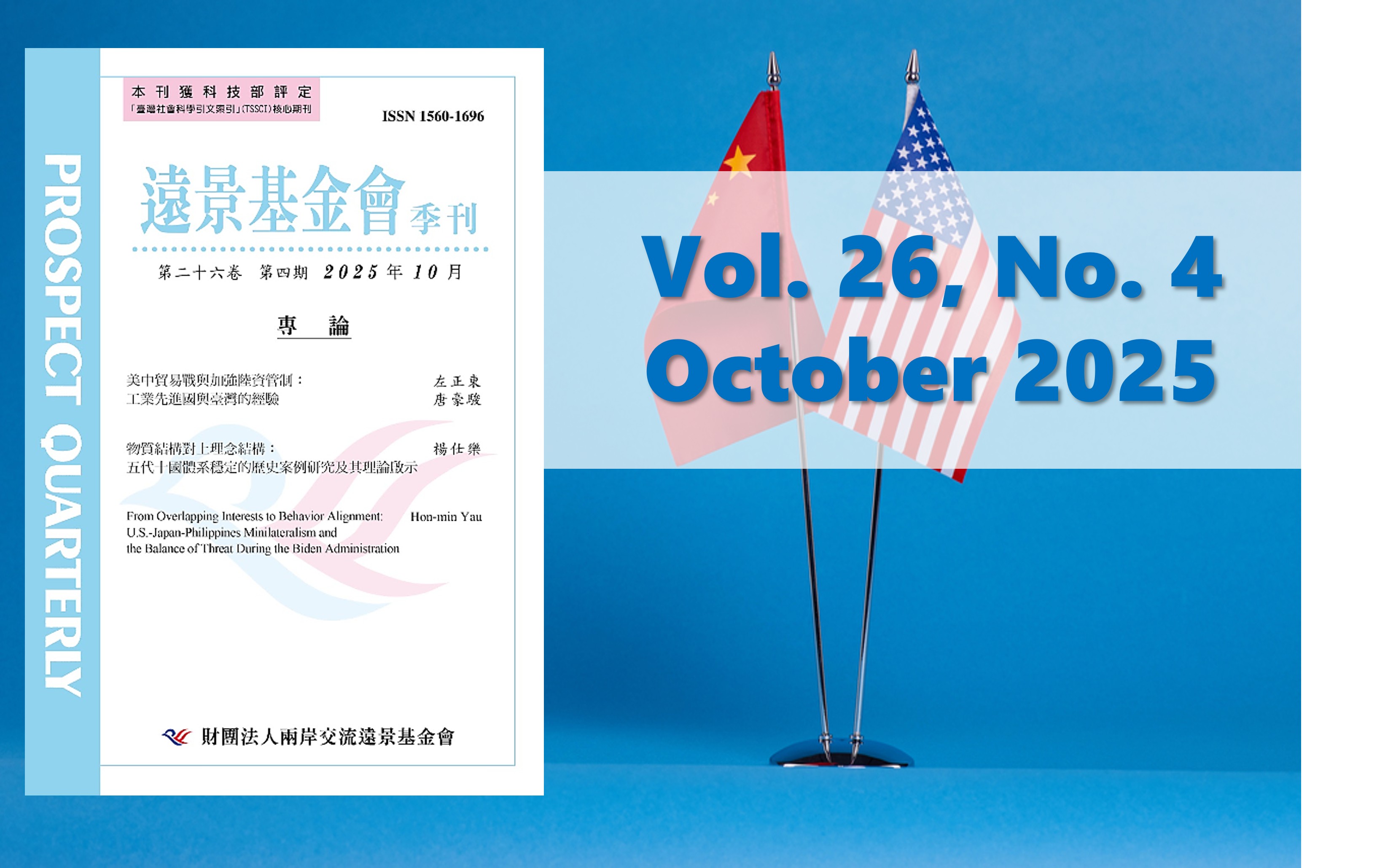Prospect Quarterly 26-4
The U.S.-China Trade War and the Tightening of Mainland Chinese Investment Screening:
Experiences of Advanced Industrial Countries
and Taiwan
Chen-dong Tso
(Professor, Department of Political Science, National Taiwan University)
Hao-chun Tang
(Assistant Professor, Department of Political Science, Soochow University)
Abstract
Some of the advanced industrial countries tightened their screening of inbound Chinese investment during the COVID-19 pandemic, at a time when attracting FDI was highly necessary to mitigate the economic downturn. Taiwan also tightened its screening of Chinese investment during that period. This paper analyzes the unique features of investment from China and the attitudes of advanced industrial countries toward Chinese investment. It demonstrates that since the onset of the U.S.-China trade war, industrial countries have broadened the scope of their screening to cover a wide range of industries and raised the threshold for foreign investment review.
This paper then traces the evolution of Taiwan’s screening mechanism for inbound investment from China. It examines three important cases: the e-commerce platform Taobao, iQiyi OTT, and stake-buying in Datong by Chinese investors, to highlight the characteristics of Taiwan’s regulatory amendments. Finally, this paper explains Taiwan’s regulatory changes on Chinese investment amid the COVID-19 pandemic with the aid of the acceptability threshold, which contains four elements: industry characteristics, investor characteristics, external influence, and domestic opposition. This concept is also applied to compare the similarities and differences between Taiwan and other advanced industrial countries.
Keywords: Foreign Investment Screening, Chinese investment, National Security, Critical Infrastructure, Critical Technology
Material Structure Versus Ideational Structure:
Historical Case Studies of the Stability in the Five Dynasties and Ten Kingdoms Period and
their Theoretical Implications
Shih-yueh Yang
(Professor, Graduate Institute of Strategic Studies,
National Defense University)
Abstract
This paper expands the empirical evidence for competing explanations between material and ideational structures and encourages more theoretical studies of systemic stability in contemporary international relations. Following the study of the Spring and Autumn Period and the Warring States Period, this paper focuses on the Five Dynasties and Ten Kingdoms period and examines the changes in material structures during those periods and explores the mainstream ideation popular at the time. It demonstrates how the argument that bipolar systems are relatively stable gained strong support during that period.
Keywords: Bipolar, Multipolar, Material Structure, Ideational Structure, Five Dynasties and Ten Kingdoms
從利益重疊到行為一致:
解釋拜登政府時期美日菲小多邊合作與威脅平衡及其戰略意涵
姚宏旻
(國防大學國際安全研究所副教授)
摘 要
隨著中美於印太地區的競爭加劇,自2023 年起,美日菲三國互 動越加頻繁,合作亦日益深化。結盟為戰略競爭中的關鍵能力,故當 美日菲小多邊合作逐漸成形,便被視為反映區域權力轉變的表現。然 而,值得深究的是,為何某些國家會選擇與特定國家結盟呢?本文採 國際關係中的「威脅平衡」理論,探討日本與菲律賓為何調整中立位 置的「避險」策略,並轉向與美國深化合作,但卻未採取所謂「印太 版北約」的合作倡議,而改選擇較小規模的小多邊合作機制。透過分 析此一趨勢,本文期望為印太地區的安全政策制定者提供可能之參考 與啟示。
關鍵詞:小多邊主義、結盟選擇、權力平衡、威脅平衡、印太地區





